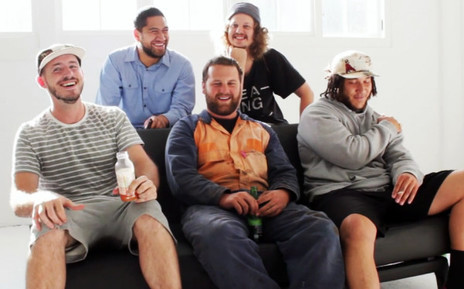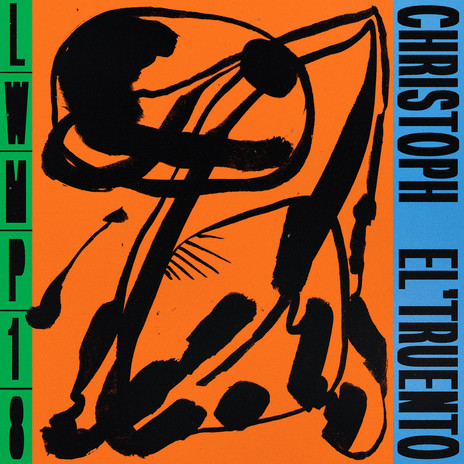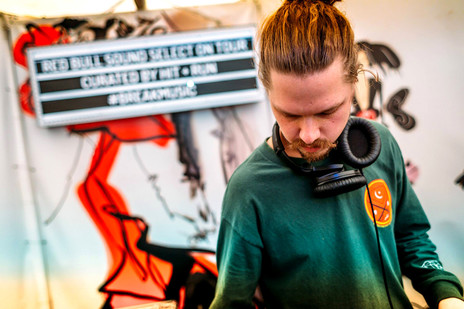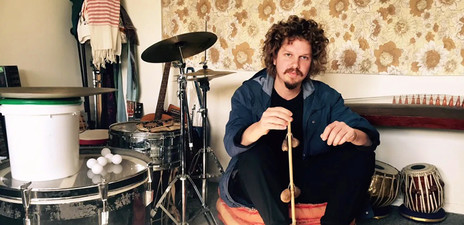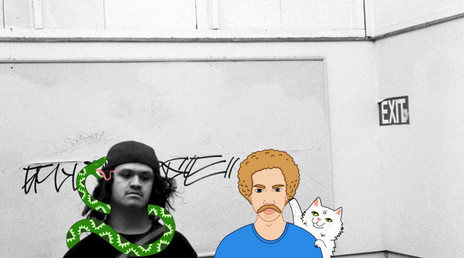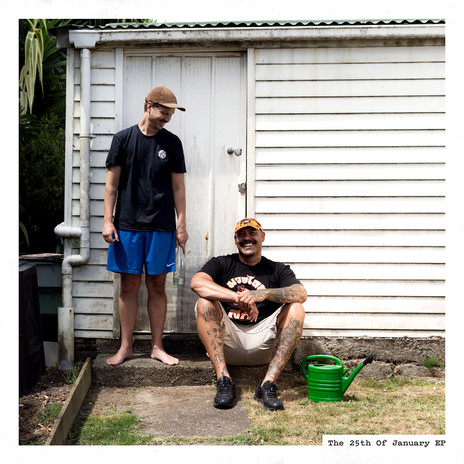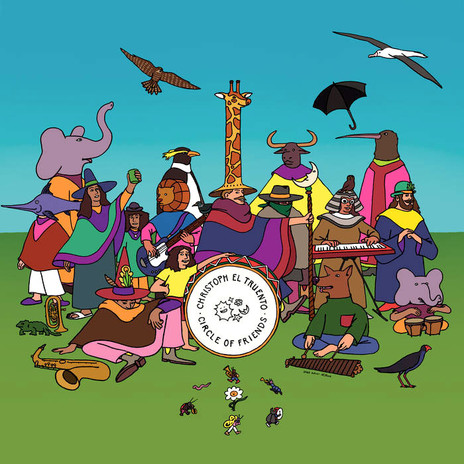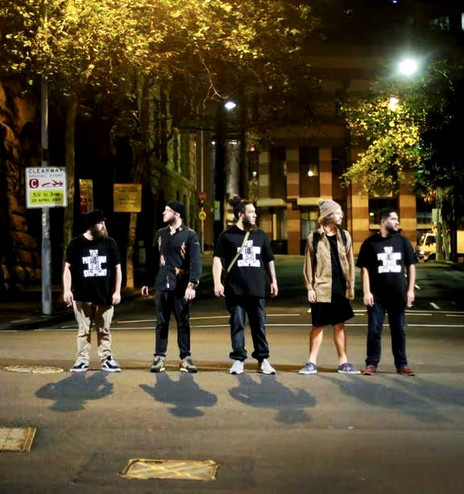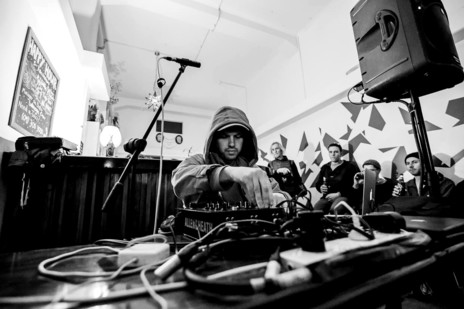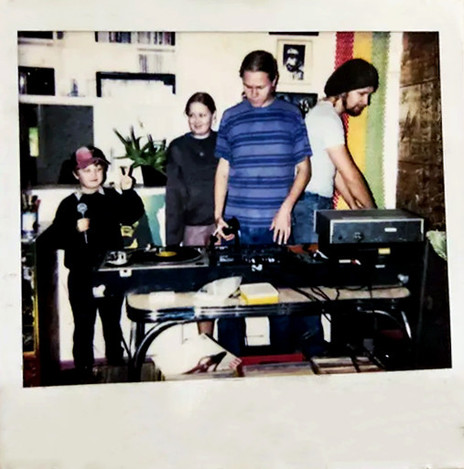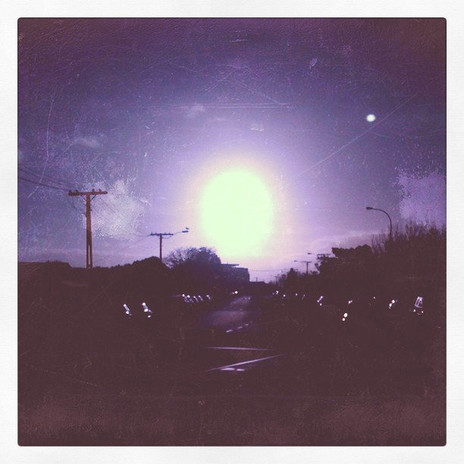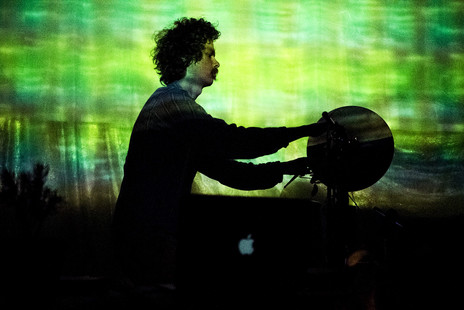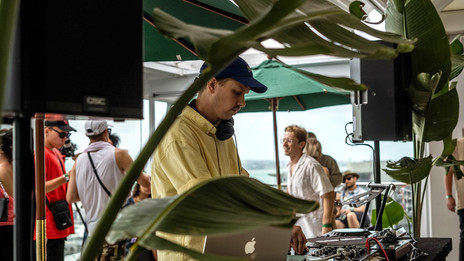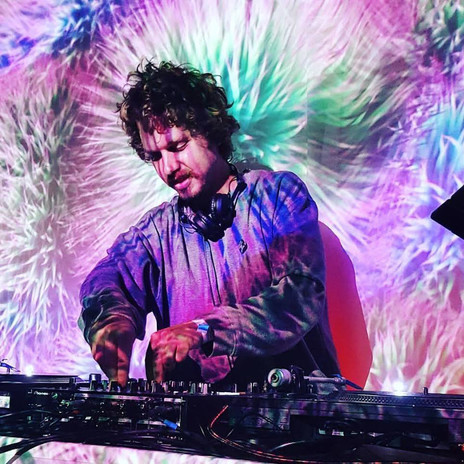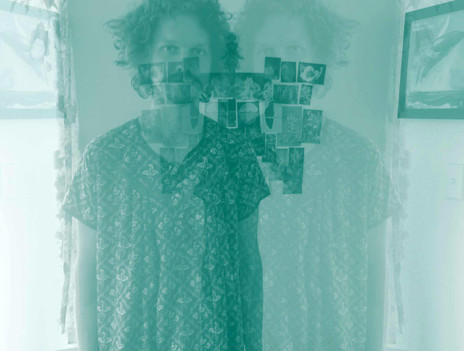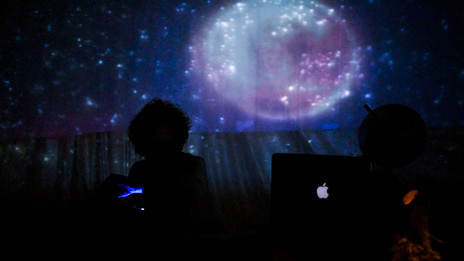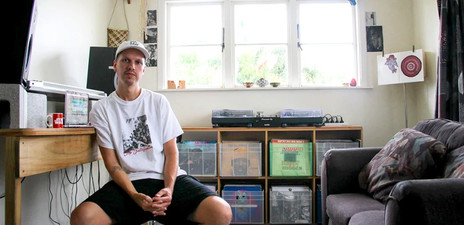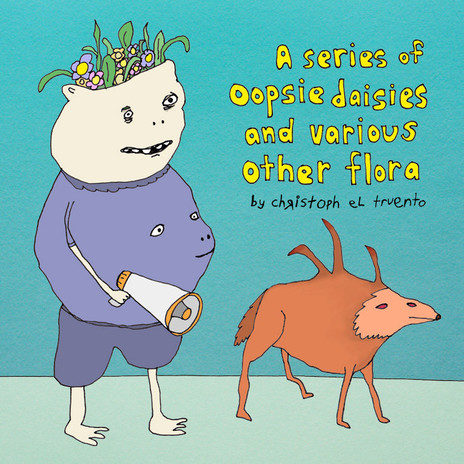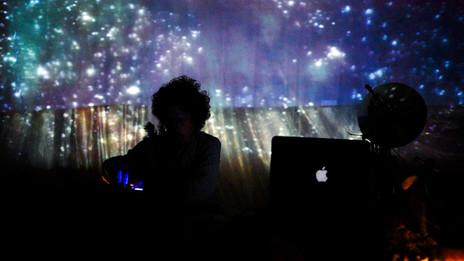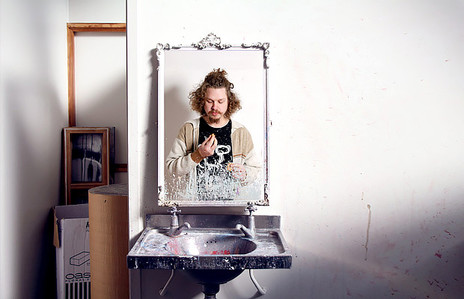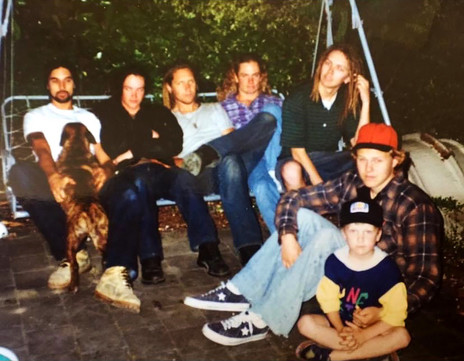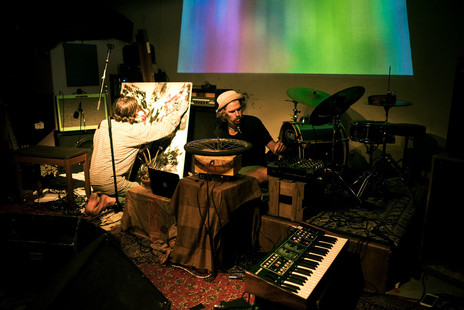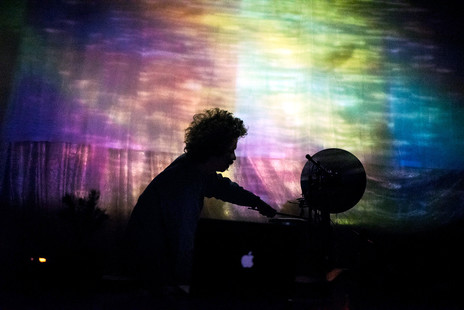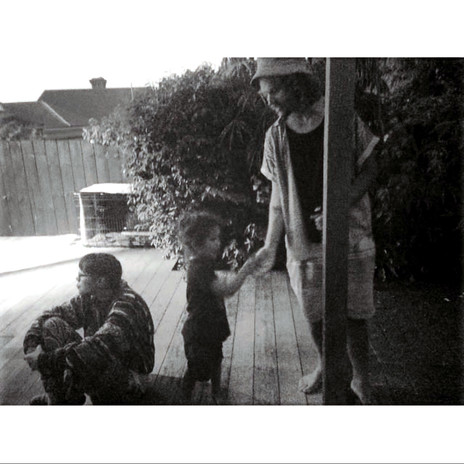Childhood
Born in Auckland in 1989, Truento grew up in a music-loving household that exemplified the stylistic tensions between generations. “My dad was pretty into music, but it had to be Cat Stevens,” he laughed, while sharing an anecdote about trying to play him Stevens’ instrumental disco-electro track ‘Was Dog A Doughnut’ (1977). “Anything involving guitar had to be acoustic. If it was plugged in, it was trash.”
However, while his father was a traditionalist, Truento’s brothers were captivated by hip-hop, electro, dub, and reggae. “They caught the Public Enemy wave,” he remembered. “So I was exposed to that as a kind of rebellion against what Dad was all about.”
As his brothers started learning how hip-hop was made and began buying equipment, they captured Truento’s imagination. “I got to see the MPC [sampling drum machine], turntables, DJ mixers, and stuff like that growing up. My oldest brother also played in a heavy metal band called Dharma.”
On the surface, it’s a perfect origin story: a generation-defining producer and DJ who grew up exposed to the tools of his trade from the cradle. That said, when Truento explained all this to me, he was careful to offer a proviso. “That doesn’t mean I didn’t go astray and catch the wave of some terrible music as a teen,” he continued. “I ended up coming back through a hip-hop lens and later finding a love for the music my dad had shown me earlier.” He also noted that his mother created an environment that allowed him and his brothers to explore their passions at home. “She made it so that we could sit around and just zone in,” he said.
Although he could watch his brothers use music equipment, getting hands-on was off-limits until one of them gave him the PlayStation Music 2000 music video game. For context, Nesian Mystik member David Atai also used Music 2000 to produce the demo instrumentals for his group’s multi-platinum debut album, Polysaturated. Still too young to buy music, Truento got by on hand-me-down CDs from his older brothers, including Che Fu’s 2 B S.Pacific album and King Kapisi’s Savage Thoughts album. “Most of the music I was consuming had been made in Aotearoa,” Truento said. “I was trying to make stuff that sounded like that.”
Making Beats
In 2002, Truento’s parents got him a cheap desktop computer with an old-school cathode-ray tube monitor. “I downloaded [the digital audio workstation] Fruity Loops, and having that computer in my bedroom became my independence,” he recalled. “Once I was old enough to start getting lunch money and catching the bus to school, I’d skip eating lunch all week and spend the money buying a record.”
His go-to music store as a teenager was the inner-city Auckland record shop Beat Merchants. “I remember seeing RZA [from The Wu-Tang Clan] in there when I was 14,” he said. However his main drawcard for shopping at Beat Merchants was interacting with one of the hip-hop DJs who worked behind the counter, Phil Bell, aka DJ Sir-Vere. “I’d bought the first edition of his Major Flavours mix CD,” he continued. “That mix was amazing. It had a real sense of magic to it.”
DJ Truent
In 2003, Truento’s brother gave him a Technics SL-1500 turntable, and his mother bought him a $200 DJ mixer from Cash Converters. He started plugging his computer into the mixer’s left audio channel and practising basic scratch DJing over his rudimentary beats. “That was my thing for years,” he said.
Truento began DJing hip-hop at house parties, warehouse raves, and on the underground Auckland radio station Base FM. Respected club DJ Manuel Bundy was the station’s programming director, and Mark James Williams and Otis Frizzell hosted the breakfast show. By this stage, Truento’s DJ brothers Selecto and the late Matty Dread hosted the weekly The Rewind show on the station from 10am to 12pm on Wednesdays. “My first time playing to a radio audience was with them on Base FM,” Truento said.
Not long after, his brothers helped him get on the line-up for an event billed as a radio station sound clash between Base FM and Fleet FM. “I thought everyone would want to hear underground rap,” Truento laughed. “No one was into it, and I froze up. That was my first experience bombing as a DJ.” Undeterred, he regrouped and figured it out. His first big gig was never going to be his last.
At the time, one of Auckland’s most popular underground hip-hop groups was The Unseen, the trio of DJ and producer Rodi Kirk, aka Scratch22, and the MCs Mike Hall, aka Legal Money Mike, and Eric-Rangi Hillman, aka Billy Fluid. After Williams and Frizzell stopped hosting the Base FM Breakfast show, The Unseen took over. Once a week, Truento would skip out of high school to DJ with his brothers after them on Base FM, earning himself the nickname DJ Truent. “Rodi [Kirk] and I would have this scratch session on-air between our shows,” he said. “Then I’d go and DJ at their gigs at Khuja Lounge and places like that.”
During those years, the rite of passage for local hip-hop DJs was entering a DJ battle, preferably the ITF or DMC. Not long after he got on Base FM, Truento entered a battle judged by Gregg Harper, DJ D-Form, who spent the mid-2000s working as Aotearoa hip-hop superstar Malo Luafutu, aka Scribe’s tour DJ. Afterwards, Harper invited Truento to join the roster on student radio station 95bFM’s Thursday night hip-hop broadcast, The World Famous True School Hip Hop Show. He accepted the offer and joined the show for two years.
Back to the beats
Inspired by the mid-2000s US/UK beat collage and loop scene, producers such as Jneiro Jarel, aka Dr. Who Dat?, and online music sites like MOOVMNT and Potholes In My Blog, Truento relentlessly produced instrumental beats in his basic bedroom studio. He sometimes shared them at beats nights around the city. He also listened to an underground hip-hop show on George FM hosted by DJ Stormin Norman, who had a close association with Youthtown. “He used to have Homebrew on before anyone knew who they were,” Truento remembered.
By “Homebrew before anyone knew who they were,” Truento was referring to when Homebrew frontman Tom Scott was rapping over instrumentals produced by his childhood friend, Shaun Hopkins, aka SoulChef. In a roundabout way, Truento met Scott through Norman. They started talking about music on the pre-Facebook social media site MySpace, and Scott began coming up to Truento’s Base FM show to freestyle live on the radio.
As well as meeting Homebrew through Norman’s George FM radio show, Truento also connected with Valentin Ozich, who went on to found the Auckland fashion label I Love Ugly. At the time, Ozich was in a hip-hop group called Frozen Capitals. When it came time to make some recordings, they turned to Truento for music. “That was my first attempt at making songs with vocalists,” he said. Not long after, his involvement in the 95bFM True School show led to him producing some music for Breakin WreckWordz rapper Tyson Tyler and spending six months DJing for David Dallas during his live shows.
Young, Gifted & Broke
By 2008, Truento and Scott were regularly recording demos together, one of which became ‘Saturday’ on Homebrew’s breakout EP Last Week. As Scott began establishing his extended Young, Gifted & Broke (now Years Gone By) artist collective, Truento started to collaborate with fellow YGB members such as Hone Be Good and Team Dynamite and DJ alongside the rest of the roster at shows.
He also picked up a midweek DJ residency alongside the Auckland spiritual jazz band The Circling Sun at Ponsonby Social Club. There, he befriended drummer Julien Dyne, who was on the verge of releasing his acclaimed 2009 debut album Pins & Digits overseas through BBE (UK) and Wonderful Noise Productions (Japan). “My DJ sets were all vinyl back then,” James said. “I wasn’t even using [the] Serato [DJ software] yet, so I had to really dig and find records, and I was mostly collecting jazz for that reason.”
Dyne connected Truento with Wonderful Noise Productions founder Kenji Sakajiri. Two years later, in 2011, the label released James’s debut EP, EP001, on vinyl. That same year, Truento teamed up with Tom Scott, rapper/singer Lui Tuiasau from Nothing 2 Nobody, and the multi-instrumentalists/producers Hayden “Dandruff” Dicky and Brandon Haru, aka B.Haru, to form the Aotearoa hip-hop supergroup @Peace.
@Peace and Homebrew
Over the next three years, @Peace recorded three albums together: @Peace (2011), Girl Songs (2013), and @Peace And The Plutonian Noise Symphony (2014). Along the way, they evolved from jazz-inflected rap into sprawling, prog-rock slanted psychedelic hip-hop soul.
“For the first [@Peace] project, Tom [Scott] and Lui [Tuiasau] wanted to make an album together,” Truento remembers. “They went off and recorded it with Dicky, but they needed someone to mix the audio, which was where I came in. At that point, @Peace was pretty loose. We did some shows where there were eight or nine of us doing different things on stage. After that, the group solidified down to the core five members.”
Alongside @Peace, Scott and another of his core collaborators – the producer Haz Huavi, aka Haz Beats – were pushing on with their Homebrew group. By this stage, it had become something bigger, leading to a live band and collaborations with beatmakers, musicians, rappers, DJs, and vocalists from the extended Young, Gifted & Broke family. As with @Peace, Truento maintained a level of involvement, contributing beats and ideas to Homebrew’s self-titled debut double album, released in 2012.
Over the last 13 years, Truento and Scott have maintained a consistent working relationship across Scott’s Average Rap Band (with Tuiasau) and Avantdale Bowling Club projects. “I think Tom [Scott] has always seen me as someone who can mix and arrange his music,” Truento said. “A lot of the time, he’ll send me music that’s been produced by someone else and be like, ‘Can you make this into a song? What does it need?’”
“I’ve never met anyone who works as quickly as him,” says Scott. “The things you hear from him, he’s made them in five minutes. It’s not because he’s undercooked or rushed them. He knows what he needs to do. When he was working in kitchens, I think he’d spend the day thinking about what he wanted to do. By the time he got home, he knew exactly what he wanted to do and could execute it in minutes. When I go around to his house, the beat is done in two minutes, and I need two hours to write the verse. That’s the level he is on.”
Although he’s never had formal training in musical arrangement, Truento credited shifting from using the MPC [sampling drum machine] to the FL Studio (formerly Fruity Loops) and Ableton digital audio workstation software programs with helping him develop his process. “With the change of software, I started to see music from an arrangement point of view,” he said. “I could do so much more, almost too much sometimes.” When it comes to audio engineering, he had a similar experience. Rather than taking classes, Truento tried to make song elements sound the way he liked, honing his skill through trial and error. “I knew what I liked and how I wanted things to sound,” he reflected.
Parenthood and solo albums
Around the time they started the @Peace project, Truento and his partner had their first child. In moments of downtime, he began writing the sampled-based jazz-meets-beats tracks that became his first solo album, what we used to know (2012). “There was a real change at that time in terms of what I was listening to and spitting back out [as a producer],” he said.
Thinking back, Truento remembers feeling somewhat out of his depth as a young parent and finding comfort in the 1970s spiritual jazz albums recorded by US luminaries such as Alice Coltrane and Pharoah Saunders. “I was 22, but I didn’t feel exactly set-up and stable like some people are as parents at that age, he admitted. “We were playing Alice Coltrane in the room when our son was born. After that, I was really careful to only play music around him that I felt was worthy of his ears.”
That year, Truento got in the studio with some musician friends associated with Young, Gifted & Broke and recorded a swirly, ambient jazz track titled ‘Sunflower’. Upon hearing an MP3, Sakajiri from Wonderful Noise Productions in Japan agreed to release it overseas as a 7" record. “At the time, I was worried about maintaining a sense of stylistic continuity between my releases,” Truento laughed. “After that record came out, that went out the window.”
In Auckland, Truento was also conversing with DJ and event promoter Addison Chase, who was establishing the music education platform and record label, Cosmic Compositions.
During the label’s early days, Chase curated a series of beats compilation albums that paid homage to some of the titans of American jazz, such as Sun Ra and the aforementioned Coltrane and Saunders. Truento contributed several tracks to the series, laying the foundations for a musical friendship that endures to this day.
Between 2012 and 2023, Truento released eleven solo albums and several solo EPs under his Christoph El Truento, Foraging, and SSELLF aliases. Beginning with what we used to know (2012), his releases have often unfolded as impromptu MP3 uploads on Bandcamp, which, through luck, timing, existing contacts, and random chance, have often come to the attention of European and American record labels such as OnGravity Records, Nutriot Recordings and Become Eternal, who later reissued them on vinyl or cassette tape.
While reviewing Truento’s most recent album, Circle of Friends, for The Sampler, Radio New Zealand’s Tony Stamp noted, “Encompassing different decades of musical style within a single song, never mind one so slick, might feel like a flex coming from any other producer. But Truento keeps proving that this stuff is second nature to him, as he wanders through genres and makes them his own.”
“For me, making music is a form of nostalgia,” says Truento. “It’s a way of taking myself back to a more playful and innocent time. Having kids really reinforced this for me. I always try to make music that they could relate to and keep it fun for myself.”
“When I first met Chris[topher], I was surprised he wasn’t older,” remembered Tom Scott. “Even today, I still see him as a child savant. You know when you see one of those movies where the spirit possesses a nine-year-old kid, and everyone says they’re the chosen one? I still see him like that. He’s like a nine-year-old kid that I ask for advice. I just trust him so much and think he is beyond the rest of us. He sees things that we don’t see. He’s a genius.”
Across his catalogue, Truento has explored several galaxies of sound, trying his hand at wonky instrumental hip-hop, ambient, spiritual jazz, avant-garde composition, dub, psychedelic children’s music, juke, footwork, new age, post-punk and experimental soul. “I love being shit at something,” Truento says, laughing. “I love the learning curve when you’re doing something new. That’s why I like changing the style of what I’m doing so often and thinking about different things.”
Recent years
In recent years, Truento has recorded collaborative EPs with the Auckland rappers Hone Be Good, Lucky Lance, and Brandn Shiraz. “I wanted to go back to what I might be doing if I still used the MPC [sampling drum machine],” he explained. “It was really just about simplifying and not using all of those extra tools that I have at my fingertips. I felt like I hadn’t made the rap music that I wanted to make yet. So that was me scratching an itch, in a sense. Working with Lance and Shiraz also showed me a scene of people doing stuff I didn’t know about here.”
In the early to mid-2010s, Truento was a night school tutor in DJing and music production at MAINZ (Music and Audio Institute of New Zealand) in Auckland. In 2023, he took part in a live production Q&A in front of an audience at the Onehunga Community Centre as part of Te Karanga Charitable Trust’s Navigators music program, which allowed him to dig deeper into the scenes Lance and Shiraz had introduced him to. “Seeing what they were doing out there blew my mind,” he said.
Alongside all of these different efforts, Truento has contributed music to projects helmed by the New Zealand music makers Julien Dyne, Hollie Smith, Mara TK, Isaac Aesili (Funkommunity, later Sorceress), and Tokyo Prose, occasionally worked with musicians overseas, and handed in the odd remix here and there. He also DJs regularly in Auckland and around New Zealand, winning over audiences and fellow DJs with his maverick spirit.
A DJs DJ
“Christoph [El Truento] is one of those DJs and producers that keep me interested,” explained the Raglan-based record seller, tastemaker, and DJ Cian O’Donnell, aka Cian. “He can nail so many genres without being an imitator or sounding contrived. He has that touch, which stands him apart from so many other locals.”
Truento maintains a small directory of mixtapes on his Mixcloud page, which serves as an accessible introduction to his eclectic, party-rocking DJ style. “Playing lots of different music in a DJ set is really interesting to me,” he said. “I’m always trying to sell someone like Pharoah Saunders to a crowd, and the key is figuring out the steps you need to take to get there.” Having spent 20 years DJing, he’s become closely attuned to the elements that make for a good night: diversity (both in terms of the entertainers and the types of music played), the quality of the sound system, and the lighting, smell, and feel of a room. “Over summer, I had some really well-received gigs that reminded me of what it can be,” he said.
Despite his prolific work rate, Truento has never really stepped into the spotlight and remains an open secret within the musical communities he operates within. When I asked him about this, he said, “I think it’s almost important to stay out of the spotlight. You can have more longevity that way. I wouldn’t say I’m someone to approach people or send mass emails of my music to labels – not that I haven’t done that – but mostly, it’s been quite organic, either through other people introducing me or being involved in a few scenes.”
The Future
When we spoke for this article near the end of February 2024, Truento was in full stay-at-home dad mode, busy looking after his nearly two-year-old son and thinking about the future. “I’ve got a new album ready to put out, so I don’t feel the need to make music right now,” he revealed. “I’ve been happy downloading inspiration and preparing for some mixing, arranging, and producing work. When I started, you’d make something, upload it to a file-sharing service like Rapidshare, and share the link. Now, there are actual platforms for the music to be delivered.”
Thinking back over the last 20 years, Truento was pleased to note that while the systems have changed, his relationship with music hasn’t. “Sometimes I feel like I’ve heard everything,” he said, pausing briefly before he continued. “I need more time away from music than I used to, but I’m still having fun. I’m at the point now where I’m about to attempt to live off music. I’m going to throw myself in the deep end. Hopefully, the net falls out and catches me.”
A big part of this impending shift has been a recently formalised working relationship with his music manager, Audrey Siataga. “It takes a long time to set things up,” he said. “Even just getting to the point where you have a musical catalogue that generates royalties takes a long time. I’ve spent a long time working day jobs and doing music at the same time, but working with Audrey has given me the confidence that my music could be a real thing. I always made it because I liked it, but she’s helped me understand it’s more serious than that.”
